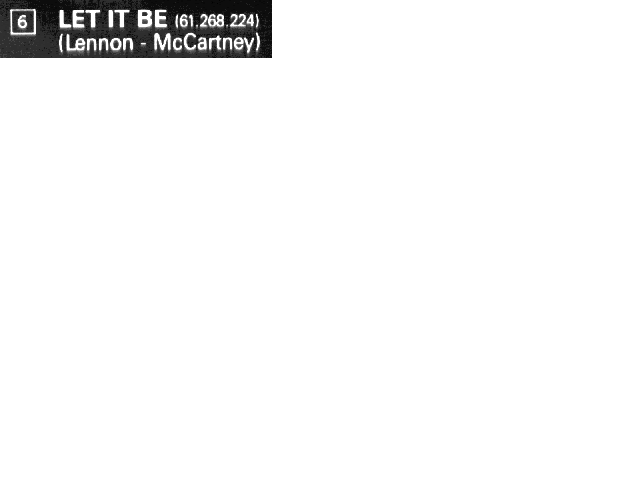
GRA Code on the Let It Be CD booklet

They are adopted by all factories, indistinctly, with the same characteristics. (though EMI-Odeon is the only that separates the digits with dots).
I wonder who is responsible for giving these codes, and what are they for.
I also have no idea what is the meaning of "GRA". Actually, I've only
seen this acronym recently.
Tracks issued originally before 1977 receive codes when they are included in new records (compilations or reissues).
When a song is released in different versions (with another artist or in other language) it may keep the same code. Or receive another code.
Sometimes a track receives a new number when reissued in another album, sometimes not.
Sometimes a track receives the number when an old album is reprinted
The Beatles' songs were all issued before the introduction of codes, so they received codes as they were included in new records, most of them compilations. So, looking at the codes that appear on the remastered records (CDs), we can find out when the songs received codes. This mean they were included in a record issued that time.
If several songs got codes at the same time they probably were included in a same record. This way, by comparing these groups of tracks with the official discography track lists (US and UK), I could suppose that some albums were released in Brazil, even if I could never actually see them. These albums are The Beatles Live at the Hollywood Bowl, both Rarities e Rock and Roll Music. This one I've seen some time later.
On the original records that certainly were not released in Brazil in the 60's (Please Please Me, With the Beatles, Beatles For Sale, Magical Mystery Tour), I looked at the codes received by these albums' tracks that aren't on compilations. So I suppose they were released in 1982. BUT I guessed it wrong! Later I found older copies of these albums - the codes were given in a reprint.
Tracks released on records issued before 1977, and not included on later releases or reprints, received their codes in the remastered collection (1988).
These rules obviously have some exceptions: tracks that are isolated (there isn't any other track with similar code), and small groups that don't fit in the official compilations. This could be related to singles releases.